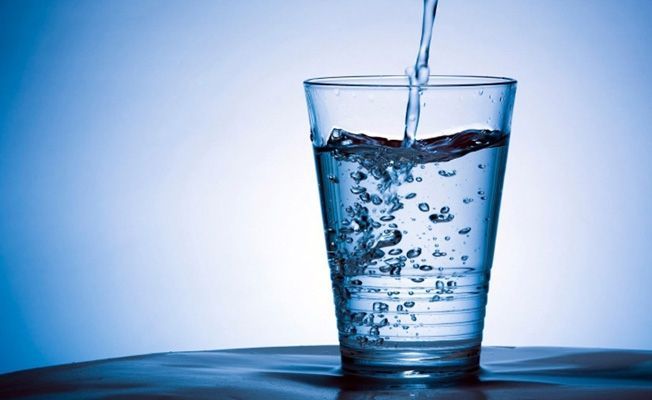How to Drink Enough Water During the Winter: A Complete Guide
Many things can change throughout the winter, including your hobbies and what you eat and drink. Adequate hydration is one thing that shouldn’t change throughout the year.
You may believe that you don’t need as much water as you would in the summer as the temperature drops. This may be the result of less sweating and thirst.
Wearing too many layers of clothing, nevertheless, may cause you to perspire unknowingly. Every time you urinate or have a bowel movement, you also lose water.
A lack of water leads to dehydration, which can cause several health issues, including dry skin and mouth, headaches, fatigue, muscle cramps, and constipation.
Staying hydrated boosts the immune system regulates body temperature, speeds up your metabolism, and maintains good-looking skin and a healthy weight.
This article will help you learn some simple tips to help you increase your water intake during winter.
Signs of Dehydration
While thirst is one of the earliest signs of dehydration, there are other signs you’re not getting enough water. If your urine is dark yellow or amber-colored, you may not be drinking enough fluids. Your urine should be a pale yellow or clear if you’re well hydrated.
Other signs of dehydration include dry mouth and skin, fatigue, rapid heart rate, reduced urine, sunken eyes, muscle cramps, constipation, headaches, and dizziness.
Infants may be dehydrated if they have dry mouth and tongue, no wet diapers for three hours, no tears when crying, have sunken eyes, have a soft spot on top of the skull, are restless, and are irritable.
While anyone can be dehydrated, older adults and infants are at the highest risk of this condition. This is because young babies may experience severe vomiting and diarrhea, while older adults may have conditions that require them to take medications that raise the risk of dehydration.
How much water should you drink per day?
The amount of water you should drink daily varies from person to person and relies on many factors. The U.S. National Academies of Sciences, Engineering, and Medicine recommends 15.5 cups (3.7 liters) of fluids daily for men and about 11.5 cups (2.7 liters) of liquids daily for women.
These guidelines apply to fluids from water, food, and other drinks. Foods account for about 20% of the daily fluid intake, with beverages making up the remaining amount.
Note that you might require more water than your spouse, sibling, or friend. How much water you need daily depends on where you live, your environment, season, diet, activity level, health, and if you’re pregnant or breastfeeding.
How to Stay Hydrated in Winter
Staying hydrated in winter is essential, even though you might not feel as thirsty in the colder weather as in the summer. Here are some tips to maintain hydration:
1. Drink warm beverages
If a glass of cold water is not appealing when it’s cold outside, try switching to warmer beverages. Start your day with a cup of hot water and a slice of lemon. If you want it to be sweeter, add a teaspoon of honey. This not only warms your body but also hydrates it.
You can also sip caffeine-free herbal teas, such as those made with ginger, peppermint, or chamomile, which not only help you stay hydrated but also offer vitamins and antioxidants to your body.
Steer clear of too much alcohol and caffeine. Alcohol and caffeine are natural diuretics and can remove electrolytes and water from your body. If you drink them, ensure you balance them with another glass of water of equal volume.
2. Eat water-rich foods
One of the best ways to sneak water into your diet without drinking it is to load up on hydrating foods! Winter has an abundance of vegetables and fruit options. Cucumbers and lettuce have the highest water content, accounting for 96%. Oranges, watermelons, pineapples, broccoli, peaches, citrus fruits, and berries are healthy fruits that increase the amount of liquids in your diet.
3. Carry a water bottle
You will need to drink a good amount of water even if you eat a lot of fruits and veggies. The best option is to have a stylish water bottle with a straw. You can easily carry it to work, at the gym, or store it anywhere.
We are constantly exhausted in the winter, and having a refreshing water bottle can make drinking more water enjoyable and simple. You may use such a water bottle without worrying about damaging the environment, which is another benefit.
4. Monitor urine color
It can be challenging to know when to rehydrate in the winter. As the temperature drops, your thirst response may decrease, and you may sweat less. However, the body still loses water through other physiological processes, such as urine.
You can monitor your hydration level by observing the color of your urine. You’re well-hydrated if you urinate often and your urine is light. You should drink more water if your urine is less frequent and darker.
5. Infuse your water with flavor
Plain water has a neutral taste and can be uninteresting to drink. But infusing herbs and fruits like citrus or mint into your purified water can be a great way to counterbalance the taste.
Other examples to boost water flavor include oranges, lemons, limes, cucumbers, strawberries, and basil. Try combining watermelon with basil, cucumber, and mint for a subtle but visible taste boost.
6. Set reminders for having water
Setting a daily water drinking goal is the simplest way to track your water intake. Download apps such as Plant Nanny, Hydrate Daily, and Waterlogged to create and achieve these water goals.
These apps will remind you to stay hydrated throughout the day and may recommend your ideal water intake based on your gender, age, weight, and activity level.
While these apps can benefit anyone, they are more beneficial for individuals with busy schedules. You can also use your phone to set alarms and reminders instead of an app.
This will ensure you drink enough water throughout the day and stay hydrated.
7. Rustle up some delicious soups
Soups can be comforting and a source of essential fluids during winter months. Clear broth soups, such as chicken or vegetable and herb broths, are classic choices with a high water content that is warming and replenishing.
Consuming soup can also help you lose weight and prevent hunger without starving yourself. Studies have shown that soup can make you feel full for longer. People who eat soup before a major meal tend to eat less overall.
Use homemade broth or stock. Bouillon cubes, canned broth, and even broth in a box have high sodium content and can cause high blood pressure, stroke, and kidney disease.



